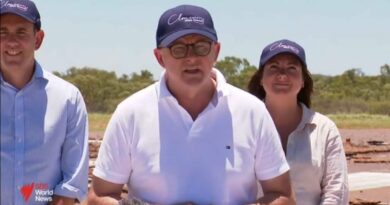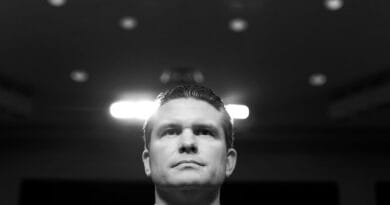What is Labor’s superannuation policy, and why is it stirring controversy?
In Australia, you’re forced to save some of your income in what’s called superannuation, or super for short.
Each time you get paid, a minimum of 11.5 per cent of your wage is put into an investment fund, which you can access at retirement.
It hasn’t always been that way – before the 1990s, it was dependent on the job you worked, or the agreement you had with your boss as to who received super.
But in 1992, former Labor Prime Minister Paul Keating changed that.
“Mr. Speaker, for the first time in our history, well in advance of reform in other advanced industrial countries, ordinary Australians will be able to build a decent nest egg for their retirement as a result of the policies of the Labor movement.”
Mandatory superannuation addresses two issues – making sure people have money to live comfortably when they retire, and taking financial pressure off the federal budget. If people have enough saved, they won’t be reliant on welfare like the aged pension.
The way super is taxed is different to the rest of your income, as Economist from the Grattan Institute Brendan Coates explains.
“Any contributions into super tax at 15 per cent for most people, and then the earnings, whether it be dividends or the interest income from bonds or term deposits, that’s also taxed at 15 per cent for most people while they’re working, and it’s 0 per cent once they retire.”
There’s some exceptions to that rule – high income earners pay 30 per cent on some contributions, and only the first $2 million is tax free at retirement time.
When you sell something in your superannuation and make a capital gain, that’s taxed at 10 per cent.
Two years ago, Treasurer Jim Chalmers announced the plan to increase taxes on some superannuation balances.
“I’m confident that Australians will see this change as modest and reasonable and fair.”
And after a landslide election win, Labor is moving to make the changes.
It’s been a bit controversial – Deputy Liberal Leader Ted O’Brien doesn’t like it.
“Let me be very clear where the coalition stands on this. Labor’s super tax is super big and super bad.”
Labor’s plan is to double the amount of tax paid on superannuation earnings on balances over $3 million.
At the moment, those earnings are taxed at 15 per cent.
That will stay the same for balances under $3 million, but any earnings on money over that amount will be taxed at 30 per cent.
“It makes a meaningful difference to the budget, and it helps us fund some of our other priorities. It’s all about making sure that the superannuation system is fairer, that it’s more sustainable.”
At the moment, around 80,000 Australians – or 0.5 per cent of people who have an Australian superannuation account, will be impacted.
But its not indexed, which means every year as inflation and wages grow, more people will have to pay the extra tax.
The other controversial part of the plan is that it will be applied to unrealised gains.
When you invest money, if that investment is worth more than what you put in, it’s increased in value.
But the gain on the investment is not realised until it’s sold – and it’s taxed at 10 per cent once that sale happens.
Labor is proposing that those gains are taxed before the asset is sold.
The coalition isn’t happy about that.
“The introduction of unrealised capital gains will be a disaster for the Australian economy.”
How that will work is that the government will look at the value of your super and compare it to the year before.
Any increase in the balance above $3 million will be taxed at 30 per cent – no matter if the increase is because of realised or unrealised gains.
All the money below $3 million will be taxed the same as before.
There have been concerns for business owners, including farmers, who sometimes have their farm or other major assets in their self managed superannuation fund, because if the value of their farm increases they will have to find the money to pay the extra tax whilst they still own it.
In the past, they wouldn’t have had to pay the money until they sold the farm, when they likely have more access to liquid assets.
Treasurer Jim Chalmers says taxing unrealised gains is the only way to calculate the extra tax on some super accounts.
“The unrealised gains calculation was recommended to us by Treasury. We provided years of opportunities for people to suggest different ways to calculate that liability, and nobody has been able to come up with one.”
For Labor, these changes will increase revenue, and stop superannuation being a tax-friendly place to store wealth, as Mr Coates explains.
“The typical retiree does not actually spend down their super. They retiree in their 80s has typically got more money in Super two decades after they retire than on the day that they do retire. And you know, Treasury is expecting their forecasting that 1/3 of the money that’s withdrawn from Super, you know, by 2060 each year will be in the form of bequests going to the kids.”
The government expects the new rules will apply to all assets from July 1st this year, although the legislation is yet to pass the parliament.





